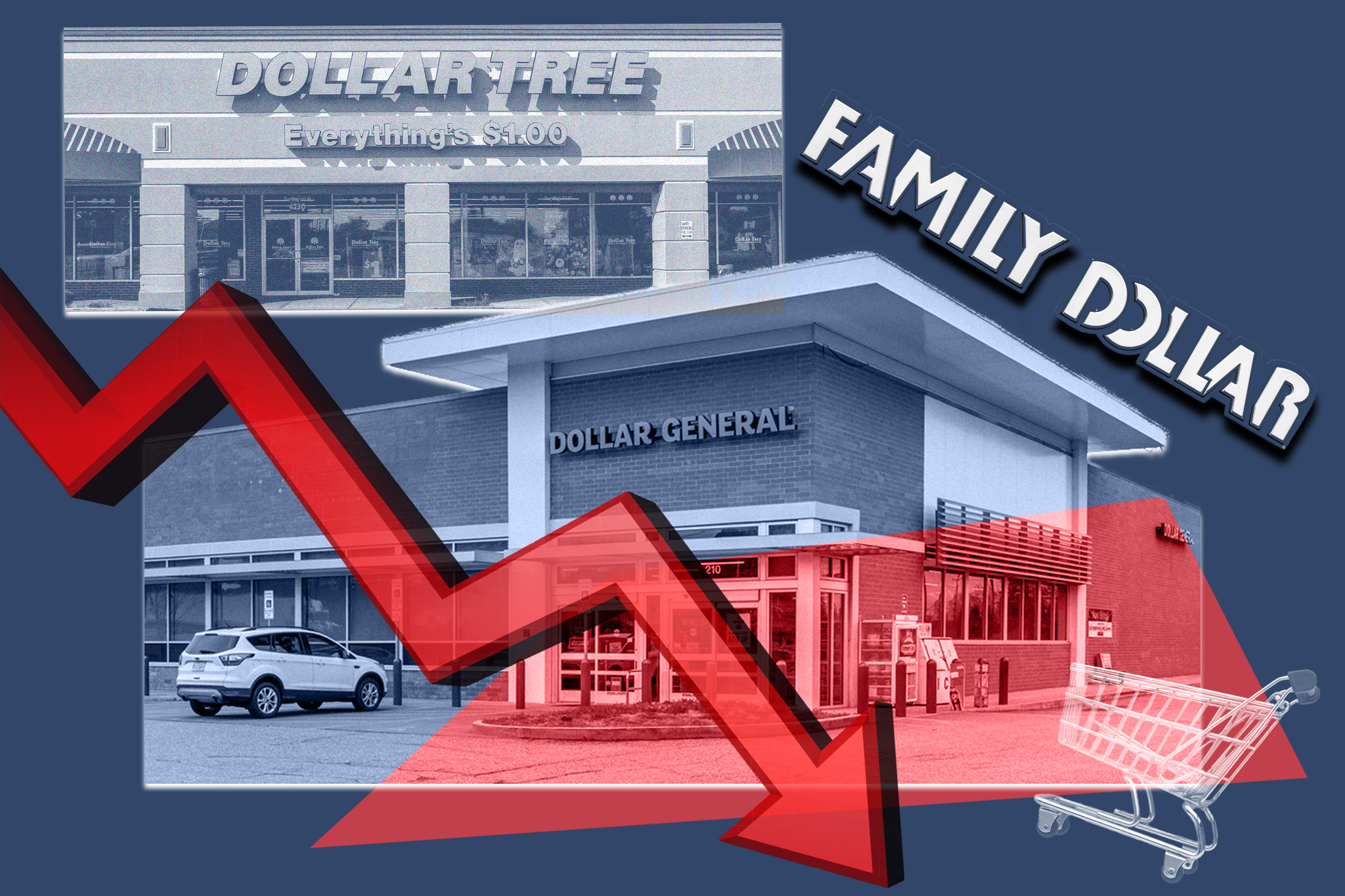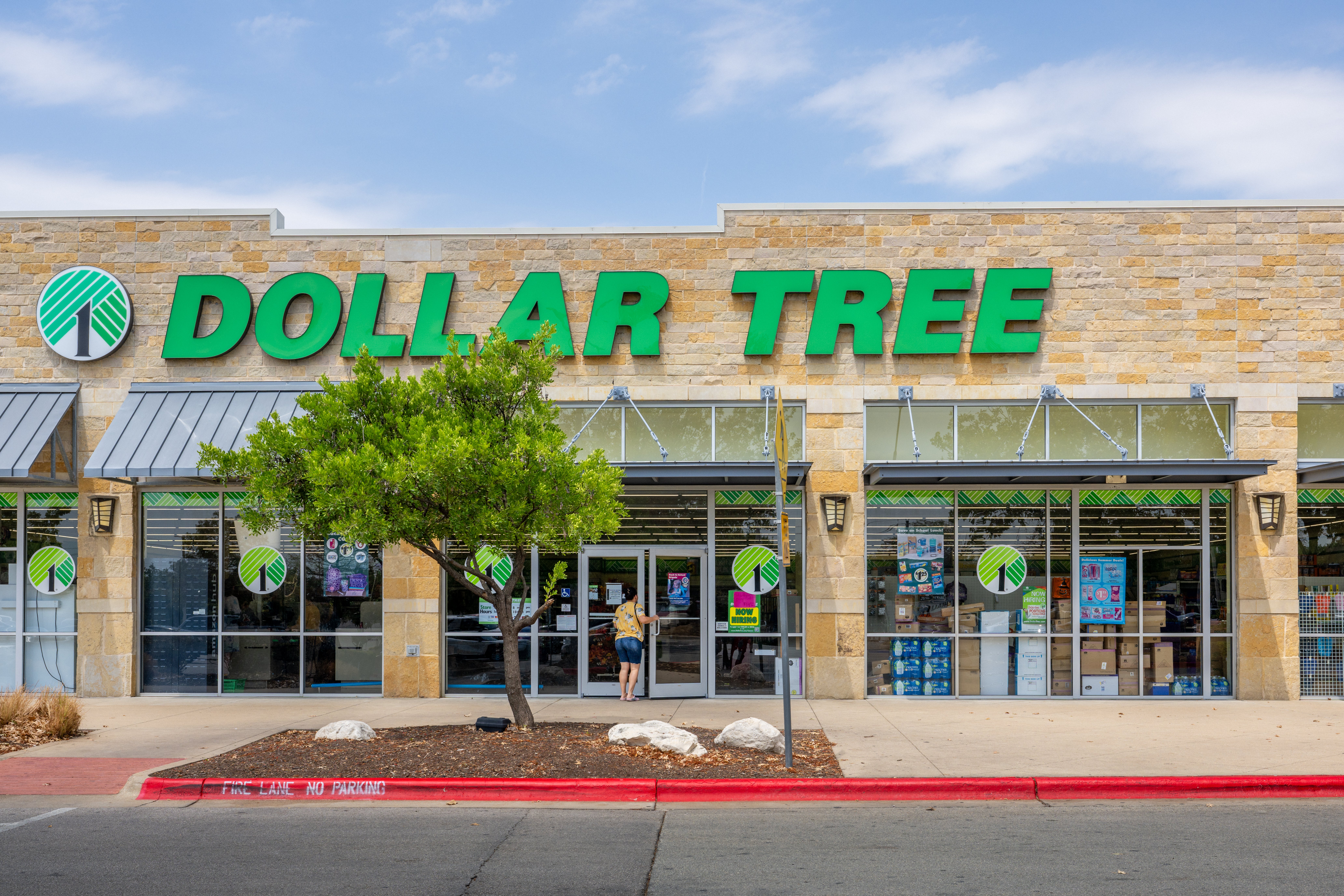Here's how one town managed to stop the opening of its 10th dollar store
Dollar stores have spread exponentially in recent years to more than 35,000 locations across the country, but many communities are fighting back after seeing local businesses destroyed by them, write Richard Hall and Alicja Hagopian


To their detractors, dollar stores are like a plague of locusts. They arrive in vast numbers, consume everything in their path, and leave residents with no fresh food.
But local governments are increasingly trying to stop the swarm by blocking more stores in their community, and hundreds of stores are closing across the country.
Could this spell the end of the dollar store as we know it?
Tangipahoa, a suburban parish with stretches of Louisiana marsh, already had a lot of dollar stores clustered around the town of Hammond when a development company tried to build another Dollar General on a stretch of highway just outside.
Unhappy residents petitioned the local council to try to stop it.
“I’m okay with one dollar store. But when you have nine within nine miles, that’s a problem,” Kim Landry Coates, a Louisiana state representative who represented the parish council at the time, tells The Independent.
After years of exponential growth, more local governments are taking action to stop new stores being built in their communities. More than 120 towns and cities have rejected proposed dollar store developments, and more than 60 have implemented laws that limit their expansion.
But Tangipahoa’s fight was different. The parish had no zoning laws to block the construction, so instead they became one of the first local governments in the country to use police powers to stop another dollar store from opening in their community.
It was a novel idea that hadn’t really been tested before. The city argued that opening another store threatened the health, safety and welfare of its citizens.
“Our attorney told us we couldn’t win this case,” Coates says. “But after we had a deposition and we did our research and we decided to use these police powers, he said: ‘I think we got a 50-50 shot.”
The developers sued, but the parish won.
A spate of recent closures has put the future of the dollar store in doubt. Dollar Tree announced 1,000 stores would shut back in March, mostly of its Family Dollar branches. Then just this week came news it was exploring the sale of its 8,000 Family Dollar locations.
Even with that turbulence, the industry is still gigantic. Dollar General is worth an estimated $30.66bn today, while Dollar Tree sits at around $26bn, making the battles between local governments and the retail behemoth akin to David vs Goliath.
Kennedy Smith, a researcher with the nonprofit advocacy group Institute for Self-Reliance, has been writing about the impact of dollar stores for years and even advised Tangipahoa’s parish council on their legal battle. She believes Tangipahoa using police powers to stop the spread of these stores creates a blueprint for other communities to use the same court ruling.
“It provides a solid legal precedent for other planning commissions and city councils that, like those in Tangipahoa Parish, are alarmed by the damage that dollar store chains are doing,” she says.
Pardon my French, but they gave me bulls***
The idea that dollar stores may have had a negative impact on the communities they operate in has been the subject of intense study over the past decade, as they spread into almost every corner of the country.
The 2008 recession sparked exponential growth as families searched for ways to reduce their household budgets and found it in the cheap, packaged food — without the need to drive to an out-of-town superstore. Between 2018 and 2021, around half of all retail stores that opened in the US were dollar stores, according to research by the University of Toronto. Today, there are more dollar stores than Walmarts, CVS, Walgreens, and Targets combined, the study found.
But they also bring problems. Common complaints include: chronically understaffed stores, staff paid poorly, aisles chaotically filled with stock, a lack of fresh food, local competition forced out, and most of all — that there are simply too many of them. They are also predominantly placed in poorer neighborhoods, and disproportionately in Black and minority areas.

As an alderman in Chicago’s 19th ward, Matt O’Shea would get complaints from residents about the conditions of the dollar stores, from stock littering the aisles to shopping carts strewn about the parking lot.
He reached out to the stores, but would often get no response. So he and his colleagues on the city council moved to vote to stop their oversaturation. That prompted a heavy response from the chain stores: lobbyists, attorneys and executives swarmed in to try to stop them.
“They flew in some expensive suits and we sat down and I laid out what the problems were,” Mr O’Shea tells The Independent.
“Pardon my French, but they gave me bulls***,” he adds.
He said he soon realized the companies were not taking the issue seriously, so the council passed the legislation to put the brakes on further dollar store development.
“It prevents the oversaturation of dollar stores in communities,” O’Shea says. “And it holds them more accountable if they are egregious in, you know, having overflowing dumpsters or garbage strewn about their parking lot.”
Much like how the rise of Walmart contributed to the decline of downtown areas in towns across the US, the acceleration of the dollar store dealt a deadly blow to independent grocery stores. Researchers at the University of Toronto found a direct link between the proliferation of dollar stores and the closure of local grocery stores, which in turn creates a lack of options for residents to find fresh food in their neighborhoods, and means less money being recirculated locally.
Smith, the researcher, believes the impact of the spread of chain stores is profound.
“We’re undergoing a wholesale shift of wealth from locally owned businesses — and therefore from communities — to these massive corporations that are generating billions of dollars annually in profits and distributing that money to their investors and their shareholders,” Smith says.
“We’re seeing a fundamental loss of democracy,” she adds.
It’s literally the financial death of all hope for millions of families
Not every community has a problem with dollar stores, however.
The historic town of Canton in Mississippi maintains a quintessential southern charm. Its Greek revival courthouse served as the setting for scenes in Hollywood blockbusters ‘Oh Brother Where Art Thou’ and ‘A Time to Kill.’
And, it is inundated with dollar stores. There are six of them along or beside its main street— one of the highest concentrations of any town in the country.
But several locals tell The Independent that the stores have filled a vital need. “They are an addition to the town because now you have people that couldn’t afford high-priced items that are able to buy things,” Maureen Simpson, the president of the Canton Historical Society, says. “They see a lot of traffic in our town.”
Joseph Deason, executive director of the Madison County Economic Development Authority, which includes Canton, grew up nearby, and also thinks they’ve helped the town.
“When I was growing up, you had to drive 12 miles just to get a gallon of milk,” he says. “So these food desserts are real.”
He says for low-income communities, the cheap food on offer can be a “life-saver.” But he concedes that their proliferation may have taken something away from towns like Canton.
“It’s like they are the new mom-and-pop,” he says. “Even though it’s corporate America, they’ve sort of taken a snapshot from the early ages and have replicated that throughout the US.”
But, he adds: “I think you lose a little bit of the charm.”

Canton happened to be one of the towns hit by a dollar store closure, with one closing and five remaining.
The question remaining is whether closures spell doom for the industry as a whole.
Burt Flickinger III, managing director of a retail consulting firm, Strategic Resource Group, believes the days of the dollar store are numbered. He hails from generations of grocery and retail magnates: his great-uncles co-founded Woolworth Five and Dime.
“I had the same discussion with them in the 1990s that Woolworth expanded too aggressively, signed too many over-the-market leases, and had site saturation to the point of cannibalization,” he said.
He says his uncle, who was running the business at the time, screamed at him and told him he didn’t know what he was doing. Eventually, the Woolworth empire collapsed.
“It’s the same issue with the dollar stores. They’ve been on such a winning streak for so long they feel they’re invulnerable,” Flickinger, who worked on merger considerations for private equity firms of Family Dollar, Dollar Tree, and Dollar General, tells The Independent. He also retains one share in each Dollar General and Dollar Tree so he can attend shareholder meetings.
Flickinger adds that their current business model is now “simply unsustainable,” and that hundreds or potentially thousands of store closures could be forthcoming.
The impact of that, he adds, will be catastrophic, especially in the poor areas of the south where the highest concentrations of the stores are found.
“All retailers went out of business in these areas except for the dollar stores,” Flickinger says. “So when these dollar stores close, it’s literally the financial death of all hope for millions of families.”
Join our commenting forum
Join thought-provoking conversations, follow other Independent readers and see their replies
Comments